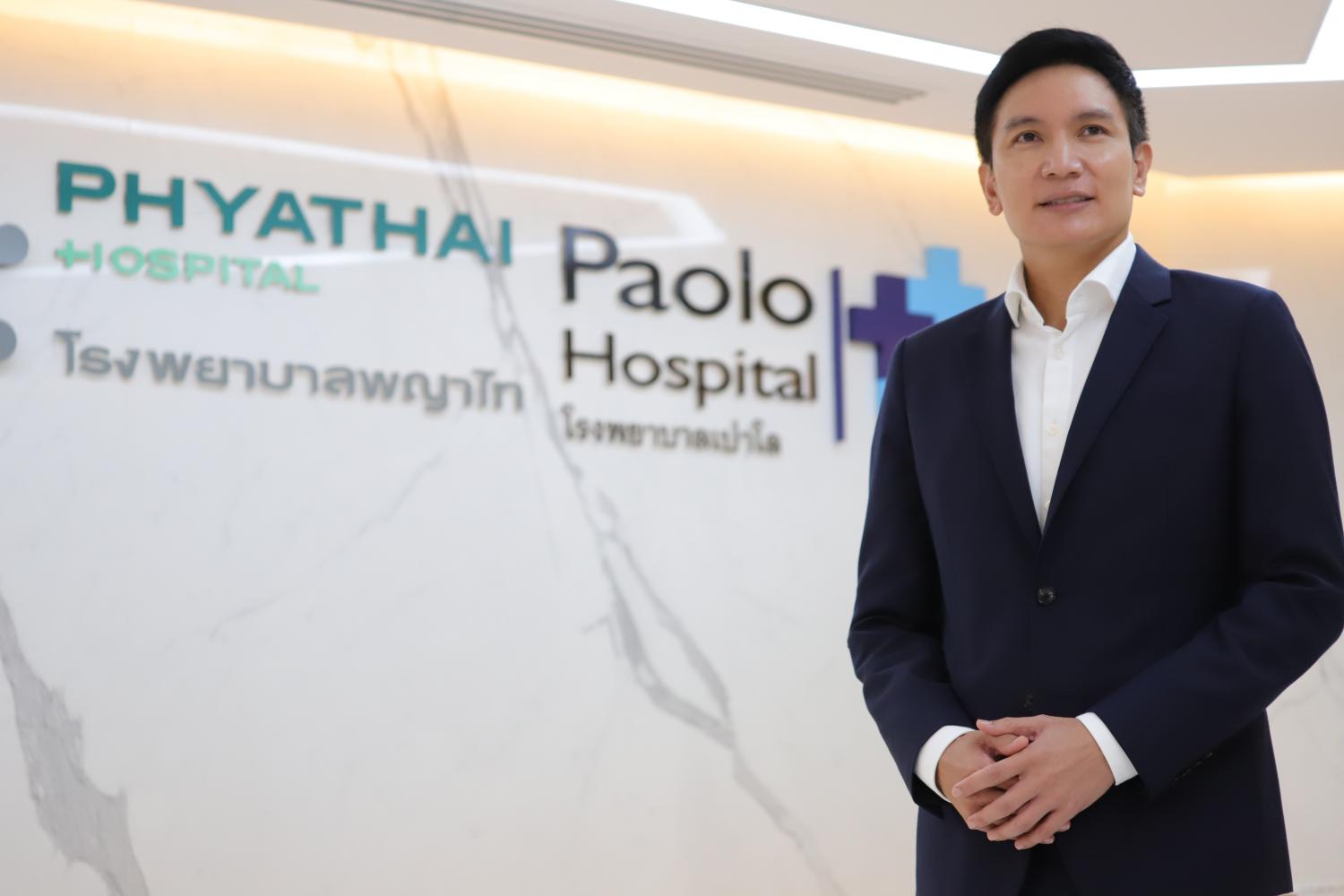
Setting up new hospitals and wellness centres is one method for expansion, but Phyathai Hospital Group and Paolo Hospital Group have their own path for growth in the healthcare industry.
Wellness facility development is becoming more important in Thailand as the country is expected to become an "aged society" this year, where people aged 60 and older account for more than 20% of the population, highlighting demand in the medical sector.
The government is also promoting medical and wellness tourism as one of 12 targeted S-curve industries based in the Eastern Economic Corridor.
But Phyathai and Paolo have no plan to invest in wellness businesses at this moment because these markets are highly competitive, said Att Thongtang, chief executive of Phyathai Hospital Group and Paolo Hospital Group under Bangkok Dusit Medical Services.
Rather than increase the number of hospital branches, the groups prefer to expand the customer base through a network of existing medical services as well as apply innovation and digital technology to develop their facilities and staff, he said.
GOING ONLINE
Digital technology has played a key role during the pandemic in facilitating meetings between patients and doctors without the need to turn up at hospitals.
"We developed an application named Healthup to serve our patients and make treatment services more convenient," said Mr Att.
The app helps patients avoid long queues at hospitals as they can use it anytime and anywhere to contact hospital personnel within minutes for a video consultation with doctors about their ailments.
The service is meant to treat common illnesses without visiting a hospital.
Communication with doctors is private on a secure online system, while medication can be delivered to patients.
The app also serves as a personal health report, with vaccination details and medical records, including laboratory, radiology and imaging results.
Patients can receive alerts through the app if they need follow-up treatment.
Hospital personnel can use the app to communicate with patients on healthcare updates and medical services that may suit their needs.
Phyathai Hospital Group and Paolo Hospital Group treat more than 3.7 million patients a year, with Thais making up 85% of the total, while foreigners, including those from Cambodia, Laos, Myanmar and Vietnam, make up the remainder.
There are five hospitals with 1,241 beds under Phyathai Hospital Group and six hospitals with 1,008 beds under Paolo Hospital Group.
As for hospital personnel, they are using a new online learning platform named CILA application that provides more than 5,000 employees easy access to medical knowledge and online training around the clock.
"All employees can use this app at any time, which will empower our staff," said Mr Att.
CREATING A NEW IMAGE
The two hospital groups want to expand their customer base by making hospitals places for "health lovers", not just patients seeking treatment.
"We plan to seek a new target group among company employees, especially health lovers who may be interested in our healthcare programmes," he said.
Hospitals need to have a new image to serve people who can get advice from experts to help them stay healthy, said Mr Att.
"The trend of healthy lifestyles is growing fast. We see this as a new business opportunity and have launched healthcare programmes that satisfy the needs of health lovers," he said.
These programmes are not only designed to keep people fit and happier, but in the long term, they will help the public health system save money for treating sick people, said Mr Att.
"Many hospitals in Thailand are following this trend and have launched their own healthcare programmes to serve companies' employees," he said.
RAISING STANDARDS
Phyathai Hospital Group and Paolo Hospital Group are also interested in developing medical innovations through their cooperation with the government under the Yothi Medical Innovation District (YMID) scheme.
The groups and Thailand Centre of Excellence for Life Sciences, a public organisation more widely known as "TCELS", are working together to turn the Yothi area, which covers Phaya Thai district and areas around Victory Monument, into a centre of medical research and innovation in Southeast Asia.
Among the projects is the development of genomic-based precision medicine, which refers to new disease treatment and prevention through better knowledge of variability of genes in each person as well as their environment and lifestyles.
Artificial intelligence is another area of interest because it can be applied to help doctors diagnose and identify certain diseases.
The two hospital groups offer privately-run healthcare services in YMID, which comprises 26 hospitals, medical institutes and research centres, with 7,000 beds and more than 4,000 hospital and medical staff.
Mr Att said medical innovations, including those using digital technology, are key factors to drive the hospital business.
"We believe technological disruption will lead healthcare and hospital businesses to adjust," he said.
